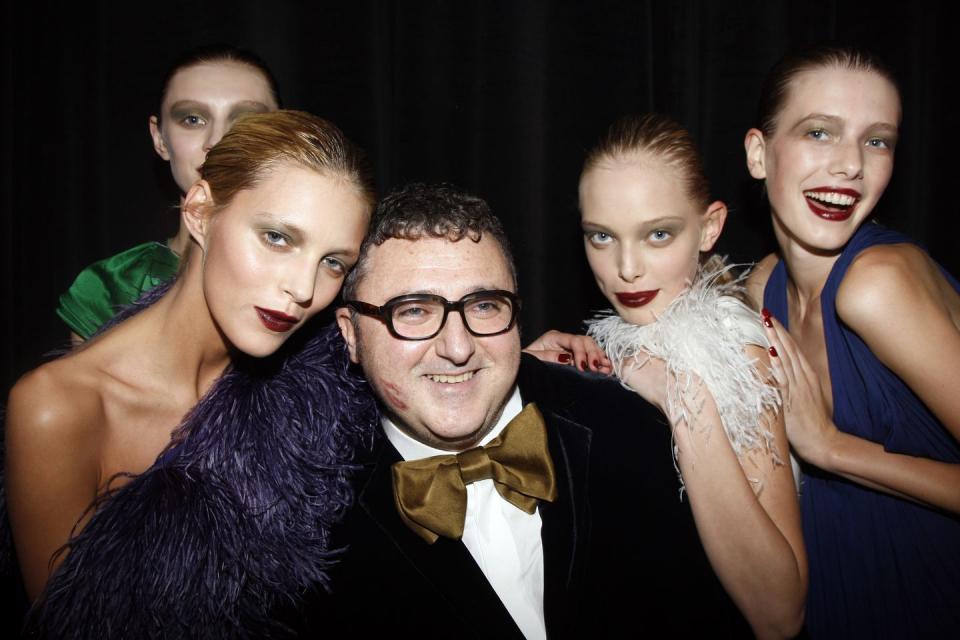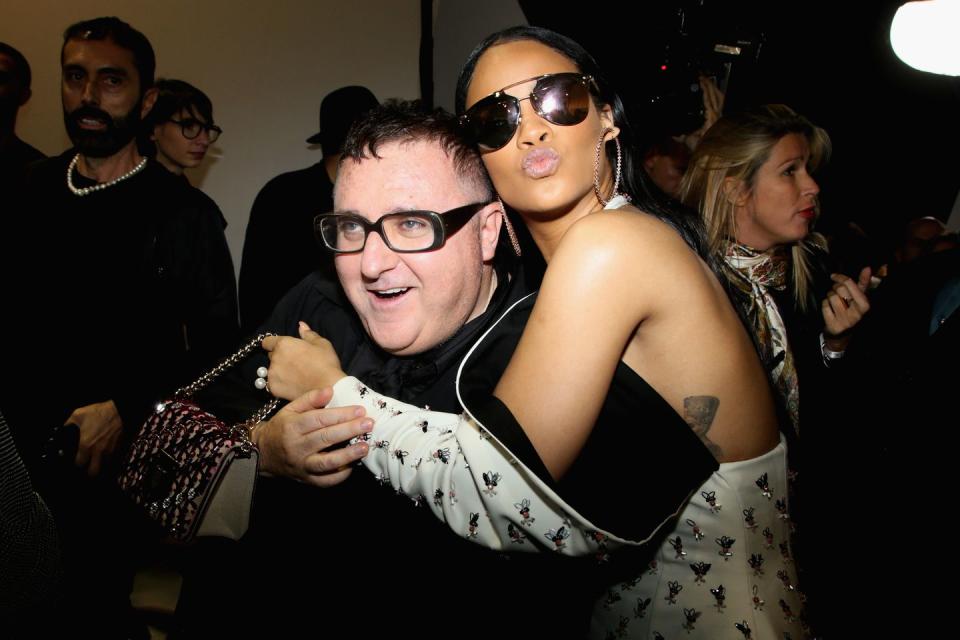Alber Elbaz Didn't Let Fashion Steal His Joy


Style Points is a weekly column about how fashion intersects with the wider world.
The last time I heard Alber Elbaz speak, he sounded optimistic. He was addressing editors via Zoom for the launch of his line AZ Factory on Net-a-Porter. It was shortly after the inauguration, and he explained that President Biden (or, as he pronounced it, Bee-DEN) had given him hope that you didn’t need to be a spring chicken to succeed. So, at 59, he was starting afresh, with a functional, innovative collection that felt more startup-y and inclusive (it went up to size 4X) than what most fashion veterans of his generation would have created.

Given his good spirits that day, it was especially gutting to hear of his passing from COVID-19 over the weekend. Elbaz seemed to have an infinite capacity for reinvention, for picking himself up and dusting himself off with a smile and a self-deprecating quip, whatever fashion threw at him. He never seemed to develop the hard outer shell that most people who have been in the business that long do as an adaptive necessity.
My first inkling that he was not a diva designer came as a lowly assistant at another magazine, when I had to write him a note apologizing for paint that found its way onto his signature oversized glasses during a photoshoot. (Long story.) He couldn’t have been more gracious, and when the decade mark of his time at Lanvin approached, he granted me an interview. Later, I got to witness him dining at the Hearst cafeteria, busing his tray just like the rest of us and delighting over the sushi station, and see him speak at Parsons, where he handed out candy from a paper bag to the audience. (“Nobody has sugar anymore!” he lamented.) Stories and remembrances of his down-to-earth nature poured in from his friends, from Naomi Campbell to Erin O'Connor, on social media. Fellow designers loved him, too, and memorialized the generosity and kindness he'd shown them.

Elbaz was never consumed with being too cool for school. He designed as he did everything else: enthusiastically. When he was at Lanvin, his bright, feminine aesthetic quickly trickled down into the fashion mainstream, a softer counterpoint to the sexed-up Y2K look. If you wore jewel tones or favored a statement necklace at some point during the mid-aughts, you might have Elbaz to thank, even if you never bought one of his pieces. His ads (notably one with Karen Elson and Raquel Zimmerman dancing to Pitbull) felt as silly, fun, and approachable as the man himself. They may have showcased luxurious clothes, but they didn’t hide behind a false front of pretension. ("I like first class, but I don't like the people in first class," he once joked.) And they created an opening for fashion ads to be looser, funnier, and viral-adjacent. With his 2010 Lanvin x H&M collaboration, which reportedly sold out in 22 minutes, he welcomed even more people into the Alber-verse, and in 2012, long before the real-models trend had hit critical mass, he cast regular people, including an 80-year-old former showgirl, in his ad campaign.

Though he might have had a Larry David-style neurotic affect, his operating principle was joy. It came through in his personality, and it came through in his designs. Happy clothes may not get the cred that serious, intellectual clothes do, but maybe we should take them and their mood-inflating powers just as seriously. As a post-pandemic summer approaches, and we prepare to meet it in every ruffle and bow we can find, Elbaz will be there in spirit.
You Might Also Like

